Home » Posts tagged 'naomi klein'
Tag Archives: naomi klein
The Future is Up for Grabs
The Future is Up for Grabs
When it comes to cashing in on Covid-19, the race has just begun. Whether you’re talking about education or contact tracing or medicine or mind control, an anti-democratic, dystopian future is being charted while we the people are locked down, locked up and locked out.
Naomi Klein’s latest piece, “Screen New Deal” in the Intercept, describes in chilling detail the way that a no-touch, no accountability pandemic economy has been being divvied up among corporate kingpins since Covid Shock hit in March.
Google is grabbing our data, Microsoft is coming for our classrooms and Amazon wants to be our one-stop, only shop.
Pandemic panic is making possible fast what the hurdle of popular consent made slow. As Klein reminds us, until recently, public pushback against companies like Amazon, Google and Microsoft was surging.
“Presidential candidates were openly discussing breaking up big tech. Amazon was forced to pull its plans for a New York headquarters because of fierce local opposition. Google’s Sidewalk Labs project was in perennial crisis, and Google’s own workers were refusing to build surveillance tech with military applications,” writes Klein.
Now, the very same companies that the public chased out the front door are walking in the back, repackaged no longer as a threat, but as the solution to our personal and national woes.
The future could certainly be bleak, but as Naomi acknowledges, we’re not there yet. It’s also important to remember that the present as we know it was not always thus.
In 1994, for example, India had a different set of patent laws, which positioned it to become the global supplier of affordable AIDS drugs. It was only the birth of the World Trade Organization and Trade-Related Intellectual Property Rights (TRIPS) that held them back. In the years that followed, an Indian drug maker and international activists used Indian law to force Big Pharma to cave. A cheap generic drug was able to save millions of lives.
…click on the above link to read the rest of the article…
Disaster collectivism: How communities rise together to respond to crises
Disaster collectivism: How communities rise together to respond to crises

When Hurricane Maria slammed into Puerto Rico on Sept. 20, 2017, Judith Rodriguez was asleep in her home. Or rather, she was trying to sleep, but the sounds of the deadly storm blowing over the island woke her up.
“That whistle was the ugliest I’ve heard in my life,” Rodriguez said. “A whistle that was never silent. It was endless. … I thought that my house was in good condition, at least I thought that. And as I woke up at 2:30am, I felt scared. The first scare was when the back door went flying off — a metal door in the kitchen.”
Like much of the island, the town of Cayey, where Rodriguez lives, was plunged into darkness for months, as winds reaching 175 mph destroyed power lines and tore roofs off houses. Already in the midst of a crippling debt crisis, and with no immediate relief in sight, communities like Cayey had to make due with the few resources they had.
“In my house I had a lot of plates,” Rodriguez says. “What if I donate my plates that are laying in a corner in my home?” She wasn’t the only one with that idea. In towns and cities all over the island, from Cayey to Caguas and Humacao to Las Marias, something began to stir. Plate donations grew into community kitchens which grew into community centers which grew into a movement. With its furiously whistling winds, Hurricane Maria had awakened something in the Puerto Rican people, something that storms, fires, earthquakes — and all manner of disasters and catastrophes — have awakened in communities all around the world.
…click on the above link to read the rest of the article…
Capitalism Killed Our Climate Momentum, Not “Human Nature”
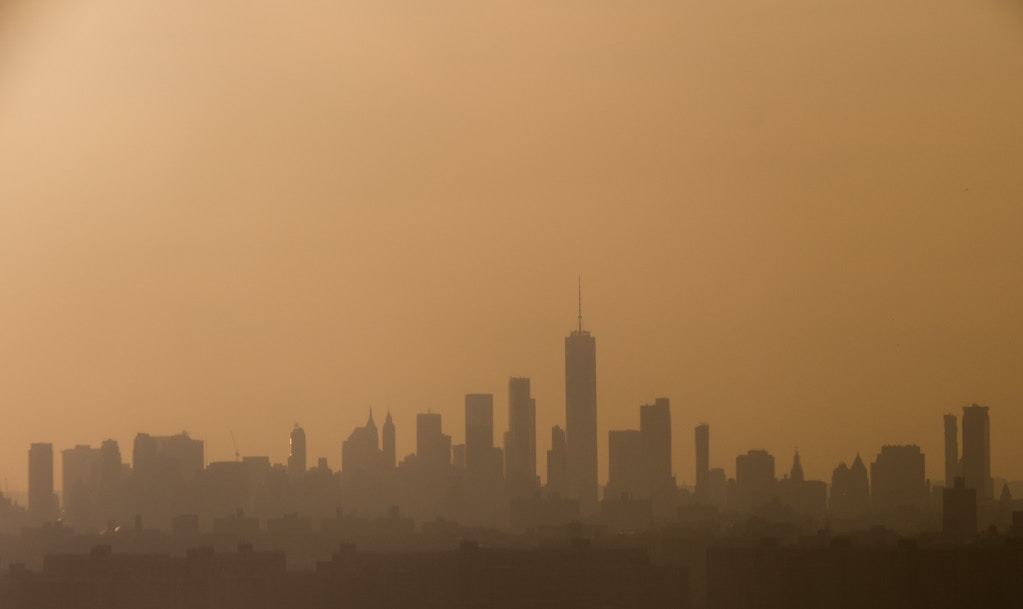
The skyline of Manhattan at sunset in New York, May 23, 2018.
Photo: Saul Loeb/AFP/Getty Images
THIS SUNDAY, THE entire New York Times Magazine will be composed of just one article on a single subject: the failure to confront the global climate crisis in the 1980s, a time when the science was settled and the politics seemed to align. Written by Nathaniel Rich, this work of history is filled with insider revelations about roads not taken that, on several occasions, made me swear out loud. And lest there be any doubt that the implications of these decisions will be etched in geologic time, Rich’s words are punctuated with full-page aerial photographs by George Steinmetz that wrenchingly document the rapid unraveling of planetary systems, from the rushing water where Greenland ice used to be to massive algae blooms in China’s third largest lake.The novella-length piece represents the kind of media commitment that the climate crisis has long deserved but almost never received. We have all heard the various excuses for why the small matter of despoiling our only home just doesn’t cut it as an urgent news story: “Climate change is too far off in the future”; “It’s inappropriate to talk about politics when people are losing their lives to hurricanes and fires”; “Journalists follow the news, they don’t make it — and politicians aren’t talking about climate change”; and of course: “Every time we try, it’s a ratings killer.”
None of the excuses can mask the dereliction of duty. It has always been possible for major media outlets to decide, all on their own, that planetary destabilization is a huge news story, very likely the most consequential of our time. They always had the capacity to harness the skills of their reporters and photographers to connect abstract science to lived extreme weather events.
…click on the above link to read the rest of the article…
Former Bank of Canada Head: Pipeline Protesters May Be Killed. So Be It.
Former Bank of Canada Head: Pipeline Protesters May Be Killed. So Be It.
“North American governments have shown the ‘fortitude’ necessary to kill indigenous people often enough that this is no idle threat,” warns Bill McKibben.

Protesters at a rally in Vancouver to show opposition to the Trans Mountain pipeline on September 9th, 2017. (Photo: William Chen/flickr/cc)
As Canada’s controversial Trans Mountain pipeline expansion project faces ongoingopposition, the former governor of the Bank of Canada said that protesters may die but that the government should push the project through anyway.
Speaking at an event Wednesday, David Dodge said, “We’re going to have some very unpleasant circumstances,” the Edmonton Journal reported. “There are some people that are going to die in protesting construction of this pipeline. We have to understand that.”
“Nevertheless, we have to be willing to enforce the law once it’s there,” Dodge said. “It’s going to take some fortitude to stand up.”
In an interview with the Journal, he elaborated by saying, “We have seen it other places, that equivalent of religious zeal leading to flouting of the law in a way that could lead to death.”
Dodge’s comments prompted outrage from climate activists.
Author and 350-org co-founder Bill McKibben warned, “North American governments have shown the ‘fortitude’ necessary to kill indigenous people often enough that this is no idle threat,” while Canandian author Naomi Klein called the threat a “disgrace.” She added, “If the worst happens, we now know they went into this with their eyes wide open.”
…click on the above link to read the rest of the article…
Jeffrey Sachs Still Promotes Disaster

Amedeo Modigliani Elvira Resting at a Table 1919
One of the most prominent actors in the book, the man behind the term ‘shock therapy’ for economies, is Jeffrey Sachs, a Harvard prodigy. In an interview at the time, Klein had this to say:
Q: You mention the shift from shock therapy to shock-and-awe, but there are also attempts to soften the image of neoliberalism. Jeffrey Sachs, the economist who pioneered shock therapy, wrote his latest book on The End of Poverty. Is there any more to this than a rebranding exercise?
A: A lot of people are under the impression that Jeffrey Sachs has renounced his past as a shock therapist and is doing penance now. But if you read The End of Poverty more closely he continues to defend these policies, but simply says there should be a greater cushion for the people at the bottom. The real legacy of neoliberalism is the story of the income gap. It destroyed the tools that narrowed the gap between rich and poor.
The very people who opened up this violent divide might now be saying that we have to do something for the people at the very bottom, but they still have nothing to say for the people in the middle who’ve lost everything.
…click on the above link to read the rest of the article…
Review: No Is Not Enough
Review: No Is Not Enough
Samir Dathi reviews No Is Not Enough: Defeating the New Shock Politics, by Naomi Klein
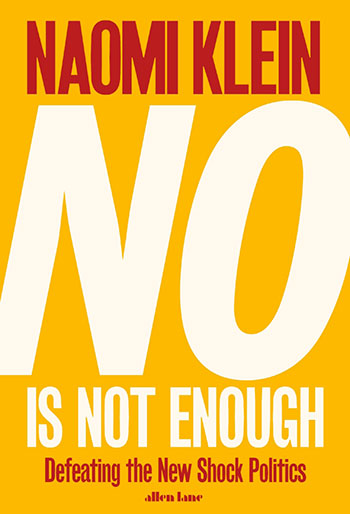 Naomi Klein’s new books always provoke plenty of excitement on the left. For starters, they always seem to augur new waves of popular struggle. The Canadian journalist’s debut No Logo, an exposé of corporate super-branding, went to print with prophetic timing just months after the 1999 Seattle protest kicked off the alter-globalisation movement. Her 2007 follow up The Shock Doctrine, on how elites use crises to push through neoliberal policy, pre-empted the credit crunch. And This Changes Everything, on the clash between free-market fundamentalism and climate justice, was published during the tense build-up to the COP21 climate talks. Each book in this anti-neoliberal trilogy became a left-wing manifesto of sorts, making sense of pivotal moments in the movements and capturing the prevailing dissident mood.
Naomi Klein’s new books always provoke plenty of excitement on the left. For starters, they always seem to augur new waves of popular struggle. The Canadian journalist’s debut No Logo, an exposé of corporate super-branding, went to print with prophetic timing just months after the 1999 Seattle protest kicked off the alter-globalisation movement. Her 2007 follow up The Shock Doctrine, on how elites use crises to push through neoliberal policy, pre-empted the credit crunch. And This Changes Everything, on the clash between free-market fundamentalism and climate justice, was published during the tense build-up to the COP21 climate talks. Each book in this anti-neoliberal trilogy became a left-wing manifesto of sorts, making sense of pivotal moments in the movements and capturing the prevailing dissident mood.
Klein’s latest book No Is Not Enough, on the rise of Trumpism, comes at another pivotal (perhaps epochal) moment. But unlike her previous books, each of which took years to write, she wrote No Is Not Enough in a few months. This rapid turnaround was for a couple of reasons. First, due to necessity – Trump’s shock win required urgent analysis. And second, because this time she hasn’t sought to break new ground – for Klein, Trump embodies the worst excesses of the neoliberal phenomena she already covered in her first three books. She writes: ‘Trump is not a rupture at all, but rather the culmination – the logical end point – of a great many dangerous stories our culture has been telling for a very long time.’ So No Is Not Enough mainly revisits and ties together threads from her earlier canon. Much of the book is taken up describing Trump the ultimate super-brand, Trump the doctor of shock therapy, and Trump the climate vandal – as well as, of course, Trump the sexist and racist.
…click on the above link to read the rest of the article…
In a Summer of Wildfires and Hurricanes, My Son Asks “Why Is Everything Going Wrong?”
THE NEWS FROM the natural world these days is mostly about water, and understandably so.
We hear about the record-setting amounts of water that Hurricane Harvey dumped on Houston and other Gulf cities and towns, mixing with petrochemicals to pollute and poison on an unfathomable scale. We hear too about the epic floods that have displaced hundreds of thousands of people from Bangladesh to Nigeria (though we don’t hear enough). And we are witnessing, yet again, the fearsome force of water and wind as Hurricane Irma — one of the most powerful storms ever recorded — leaves devastation behind in the Caribbean, with Florida now in its sights.
Yet for large parts of North America, Europe, and Africa, this summer has not been about water at all. In fact it has been about its absence; it’s been about land so dry and heat so oppressive that forested mountains exploded into smoke like volcanoes. It’s been about fires fierce enough to jump the Columbia River; fast enough to light up the outskirts of Los Angeles like an invading army; and pervasive enough to threaten natural treasures, like the tallest and most ancient sequoia trees and Glacier National Park.
For millions of people from California to Greenland, Oregon to Portugal, British Columbia to Montana, Siberia to South Africa, the summer of 2017 has been the summer of fire. And more than anything else, it’s been the summer of ubiquitous, inescapable smoke.
For years, climate scientists have warned us that a warming world is an extreme world, in which humanity is buffeted by both brutalizing excesses and stifling absences of the core elements that have kept fragile life in equilibrium for millennia. At the end of the summer of 2017 — with major cities submerged in water and others licked by flames — we are currently living through Exhibit A of this extreme world, one in which natural extremes come head-to-head with social, racial, and economic ones.
…click on the above link to read the rest of the article…
Some Thoughts on Systems Change
There is an ongoing litany of alarming and depressing news regarding climate change and the growing gap between our aspirations for addressing it and reality (and climate change is only one of the nine planetary boundaries). There is similarly grim news about exponentially increasing levels of inequality, conflict — including in what Naomi Klein calls fossil fuel sacrifice zones — and the emergence of a nation of refugees.
Pondering appropriate responses to our increasingly chaotic and unstable global context has led me to identify a few central issues. First is the high degree of interconnection between the problems that we face. I would argue that proportionate reactions to climate change, for example, demand exploration of how energy is used — which in turn demands not just an understanding of the role of energy in our economies, but a preparedness to move away from relying on economic growth as the primary aim of economic policy. Generally we shy away from questioning the fundamentals of our economic system: if they come into conflict with the major issues we face, we somehow manage simply to ignore such conflict. See, by way of example, the EU’s (secret, internal) position during COP21 that nothing could be agreed which might jeopardise TTIP and similar agreements.
Continuing on the theme of connection, or the lack of it, I’m also struck by how little connection there is, generally, between top down responses to global issues and the bottom up movements also seeking to act on those issues. Again using climate change as example, the chair of IPCC working group 2, Debra Roberts, commented on the general lack of access to high level processes and agreements:
…click on the above link to read the rest of the article…
Profits of death: disaster capitalists fan flames of war in Syria
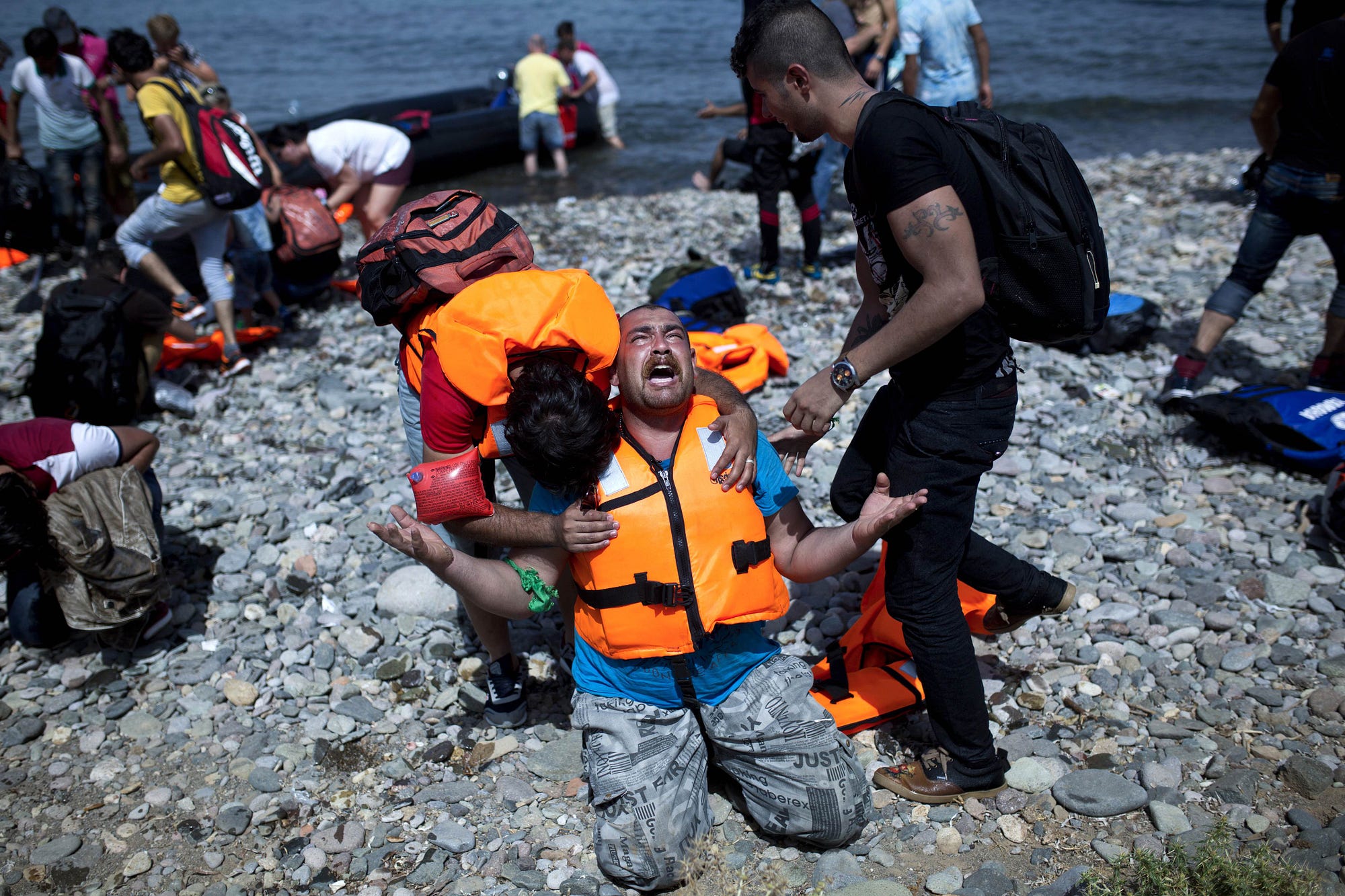
Profits of death: disaster capitalists fan flames of war in Syria
American, European and Russian corporations are the only ones winning from humanitarian disasters of their own making
As a tentative ceasefire continues to hold in Syria, with the next round of peace talks having resumed this week, you’d be forgiven for thinking that there might be an end in sight to a conflict that has raged for nearly five years.
But as with every war in the Middle East, nothing is quite as it seems.
According to Naomi Klein in her book The Shock Doctrine, corporatist (a more pertinent term for what many of us consider “neoliberal”) policymakers — those that are inherently intertwined with both Government and multinational companies — take advantage of catastrophes such as economic collapse, hurricanes, terrorist attacks and even war, to further what she describes as their “policy trinity”: the elimination of the public sphere, total liberation for corporations and skeletal social spending.
In short, disaster capitalism is premised on a simple philosophy: where there’s chaos, there’s money to be made.
From Pinochet’s Chilean coup and subsequent reforms in the 70s, via Thatcher, to the Falklands conflict and the miner’s strike; from 9/11 to the second invasion of Iraq, Klein argues that the economist Milton Friedman was the spiritual leader of this “shock doctrine”:
“The falling bombs, the bursts of terror, the pounding winds serve to soften up whole societies much as the blaring music and blows in the torture cells soften up prisoners. Like the terrorised prisoner who gives up the names of his comrades and renounces his faith, shocked societies often give up things they would otherwise fiercely protect.”
…click on the above link to read the rest of the article…
Naomi Klein: ‘We Face a Series of Radical Options’
Naomi Klein: ‘We Face a Series of Radical Options’
An exclusive Tyee preview of Klein’s sold-out climate talk in Vancouver.
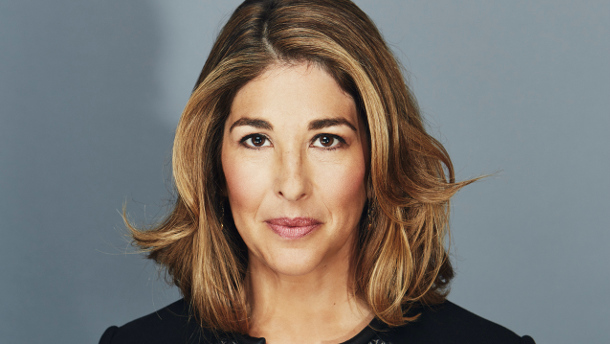
Naomi Klein: ‘Steady as she goes’ is not an option.
Earlier this week The Tyee chatted at length with Klein about the pivotal moment in history we are now living in. There are only a few short decades left to achieve the goal agreed to at the Paris climate talks of limiting global warming to 1.5 degrees above pre-industrial levels. (Which is considered safer than the less ambitious two degrees goal accepted at Copenhagen). To do so would mean a full transition off fossil fuels by 2050. But if we fail, a multi-metre sea level rise could wreak enough social and economic havoc to “make the planet ungovernable,” according toformer NASA climatologist James Hansen.
Which is why Klein is convinced that the only options we have left are radical. Read on in this exclusive Tyee interview to find out why hope is one of them. Her remarks are edited for length and clarity.
On what the Paris climate talks really achieved:
…click on the above link to read the rest of the article…
Democratic Energy and Climate Change
Democratic Energy and Climate Change
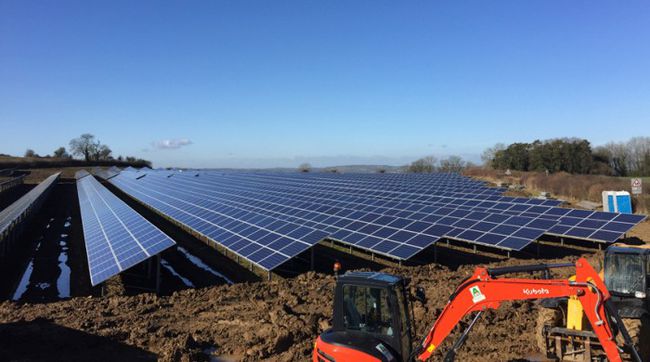
Thoughts on the book “This changes everything” by Naomi Klein
Today, man is still, or more than ever, man’s enemy, not only because he continues as much as ever to give himself over to massacres of his fellow kind, but also because he is sawing off the branch on which he is sitting: the environment.
Cornelius Castoriadis[1]
Climate change, caused by human activity, is forcing itself to the center of public debates. And that shouldn’t surprise us since the crisis it’s about to cause is of much bigger magnitude than any other economic or refugee crisis we have experienced by now. If such a crisis occurs it is possible that it will change the face of the planet entirely, possibly making it uninhabitable for humans as well as for most animal species. This gives new strength and importance to the debate about how we will continue the development of our societies, without endangering our very existence.
The carbon emissions being released into the atmosphere as a result of burning fossil fuels are amongst the main factors responsible for global warming. And the fact that the energy of our highly technological societies is being delivered mainly through these non-renewable and polluting resources raises further questions about what could replace them and what would it take for such a change to occur.
In her book This Changes Everything Naomi Klein investigates in depth these urgent questions. She demonstrates the limitations and disadvantages of centralized energy sources such as nuclear energy and natural gases, both embedded in the contemporary corporatist, top-down model. She argues for transition towards localized, democratically managed renewables that will prioritize human and environmental needs before profits and autocratic interests – i.e. they will be turned into commons. The proposal of commons-based system beyond the dogma of constant economic growth is being shared by a growing number of thinkers, social movements and communities (see also: http://new-compass.net/articles/commons-beyond-state-and-market)
…click on the above link to read the rest of the article…
Change Everything or Face A Global Katrina
(Photo: Eric Gay/AP)
For me, the road to This Changes Everything: Capitalism vs. the Climate begins in a very specific time and place. The time was exactly ten years ago. The place was New Orleans, in the aftermath of Hurricane Katrina. The road in question was flooded and littered with bodies.
Today I am posting, for the first time, the entire section on Hurricane Katrina from my last book, The Shock Doctrine: The Rise of Disaster Capitalism. Rereading the chapter 10 years after the events transpired, I am struck most by this fact: the same military equipment and contractors used against New Orleans’ Black residents have since been used to militarize police across the United States, contributing to the epidemic of murders of unarmed Black men and women. That is one way in which the Disaster Capitalism Complex perpetuates itself and protects its lucrative market
This material is free for reproduction.
From the Introduction:
I met Jamar Perry in September 2005, at the big Red Cross shelter in Baton Rouge, Louisiana. Dinner was being doled out by grinning young Scientologists, and he was standing in line. I had just been busted for talking to evacuees without a media escort and was now doing my best to blend in, a white Canadian in a sea of African-American Southerners. I dodged into the food line behind Perry and asked him to talk to me as if we were old friends, which he kindly did.
Naomi Klein Calls for System Change to Address Climate and Inequality
Naomi Klein Calls for System Change to Address Climate and Inequality
A radically new economic and social system is urgently needed to tackle climate change and address intersecting social justice issues, the internationally bestselling author Naomi Klein told activists meeting in London today.
“It’s not too late to get off the road, to grab the wheel of history and swerve,” the author of This Changes Everything told an audience of more than 1,000 attending a one-day interactive conference on climate change and social justice inspired by her book.
“It is possible to lower our emissions in line with what science is telling us,” she said via Skype. “But to do that means we need to change everything about our system.”
Klein argued that individual actions alone aren’t going to bring the level of emission reductions needed to avoid catastrophic climate change. Instead, “we need to look at large scale policies that make good decisions easier.”
The all-day event held at Friends Meeting House in Euston, London, included breakout workshops and tactic sessions – while also giving a platform speakers from across the environment and social justice movement.
Among those to join the debate were Green Party leader Natalie Bennett, Channel 4 economics editor Paul Mason, and John Broderick, a research fellow at the Tyndall Centre for Climate Change Research. There was a consensus among all speakers that bold and broad social change is required to meet the climate challenge.
…click on the above link to read the rest of the article…
‘Fighting for the Places We Love’: A Vision for the Climate Battles to Come
‘Fighting for the Places We Love’: A Vision for the Climate Battles to Come
Ahead of upcoming Global Divestment Day, a conversation between author Naomi Klein and 350.org executive director May Boeve
CD editor’s note: The following conversation between Naomi Klein and May Boeve took place as an online webinar hosted by 350.org last week in advance of the upcoming Global Divestment Day(s), taking place on February 13 and 14, during which individuals and institutions from around the world will take action and urge others “do what is necessary for climate action by divesting from fossil fuels.”
Wide-ranging in terms of topics covered, the overall talk reveals the current thinking of two prominent voices within the global climate justice movement. Klein and Boeve take a look back at the impactful events of 2014, strategic concerns for the year(s) ahead, and explore the unique historical moment that is now presenting itself to those who believe—in the face of an increasingly warming planet—that an economic, political, and energy transition is more necessary than ever.
In one key section, Klein argues what’s most essential is the further emergence of unified global movement—one whose agenda is “simple enough to fit on a postcard”— that can articulate a positive vision while continuing to make clear what it opposes. “We’re fighting to leave it in the ground. No new fossil fuel frontiers. We’re fighting for societies powered by 100% renewable energy. We’re fighting for free public transit. We’re fighting for the principle that polluters should pay, that how we pay for the transition has to be justice based. We’re fighting for the principle of frontlines first, that the people who got the worst deal in the old economy should be the first in line to benefit in the new economy. Those are some principles that we can all agree on and rally behind.”
…click on the above link to read the rest of the article…





